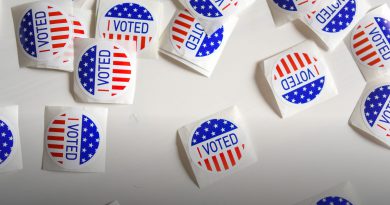The Evident Reality Of Climate Change And What We Can Do About It

In the words of Astrophysicist Neil DeGrasse Tyson, “the good thing about science is that it’s true whether or not you believe in it.” Climate change is real. The evidence is there and the causes are indisputable.
Hearing the term climate change, one might automatically imagine dying polar bears and Al Gore’s presidential campaign—and this is a huge part of the problem. People need to be educated on the issue far beyond the small amount of information that is commonly conveyed to them.
Instead of legitimate education on the effects of climate change and what we can do to minimize our contribution to the issue, people are exposed to politicians and news channels writing climate change off as a hoax.
Climate change affects each living thing and ecosystem on Earth, and what makes it one of the most relevant issues of this generation is that it stems from the deeply industrialized Western culture more than 1.2 billion people rely on to sustain their lifestyles.
The American economy is one heavily dependent on fossil fuels for transportation, electricity, among other necessities.
Excess carbon released into the atmosphere, through activities such as cutting down forests or burning fossil fuels, increases the amount of radiation trapped on earth and catalyzes temperature rise. The cars, houses, lights, and skyscrapers that characterize our competitive lifestyles lead to the melting of polar ice caps, sea levels rising, drastic weather patterns and wildfires.
Seeing someone denying the significance of climate change is not only disappointing, but also disheartening.
It is ironic that Florida is a state most rapidly being affected by the dire consequences of climate change yet also a state whose governor, Rick Scott, banned the use of the phrases “climate change” and “global warming” in his offices. According to the Florida Center for Investigative Reporting, officials under Scott’s administration were unable to use climate phrases as if there was an unwritten code within their branches.
Amid the denial, conspiracies and political propaganda surrounding climate change, there is still hope for the future of this planet. Small steps taken by the average person can truly make a difference.
For example, reducing the amount of beef in one’s diet is a way to decrease one’s carbon footprint as every pound of beef served releases 19 pounds of greenhouse gases. Even finishing a meal instead of throwing food away helps because each year, food waste around the world releases about 3 billion tons of carbon dioxide.
One of the easiest ways to cut down gas emissions is to simply pay bills online. According to the National Geographic, 3.9 billion pounds of greenhouse gas emissions can be saved if only 20 percent of all Americans switch to e-billing.
Climate change is happening now. It is not a hoax, a myth, or a conspiracy made by the Chinese government to hinder the American economy. It is a global, not a political issue and the sooner societies begin to realize this, the better.




